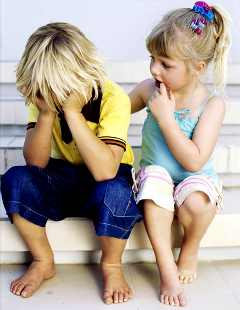Extra skills focus can boost core learning
 A recent study has suggested classroom programs aimed at teaching kids better social and emotional skills may have a positive effect on the more traditional academic areas too.
A recent study has suggested classroom programs aimed at teaching kids better social and emotional skills may have a positive effect on the more traditional academic areas too.
Several schools in the US have introduced programmes for primary schools which seek to improve students’ social and emotional skills, but research has shown literacy and numeracy rates have been boosted too.
“We find that at the very least, supporting students' social and emotional growth in the classroom does not interfere with academic learning,” said Dr Sara Rimm-Kaufman, professor at the University of Virginia.
“When teachers receive adequate levels of training and support, using practices that support students’ social and emotional growth actually boosts achievement.”
The study was conducted across a handful of randomised controlled trials.
“The success of many curricula... require that teachers use effective classroom management and develop student confidence and autonomy,” said Rimm-Kaufman.
“Our trial... suggests that teachers who take the time to foster relationships in the classroom and support children's self-control actually enhance student achievement.”
“In a time of intense academic demands, many critics question the value of spending time on teaching social skills, building classroom relationships and supporting student autonomy.
“Our research shows that time spent supporting children’s social and emotional abilities can be a very wise investment.”
The research was based on assessment of Responsive Classroom (RC) approaches, a widely-used social and emotional learning intervention tool in the United States.
The seven principles of the Responsive Classroom scheme are:
- The social curriculum is as important as the academic curriculum.
- How children learn is as important as what they learn: process and content go hand in hand.
- The greatest cognitive growth occurs through social interaction.
- There is a set of social skills children need in order to be successful academically and socially: cooperation, assertion, responsibility, empathy, and self-control.
- Knowing the children we teach individually, culturally, and developmentally is as important as knowing the content we teach.
- Knowing the families of the children we teach and inviting their participation is essential to children's education.
- How the adults at school work together is as important as individual competence: lasting change begins with the adult community.
The six teaching strategies are:
- Morning Meeting: A daily routine that builds community, creates a positive climate for learning, and reinforces academic and social skills.
- Rules and Logical Consequences: A clear and consistent approach to discipline that fosters responsibility and self-control.
- Guided Discovery: A format for introducing materials that encourages inquiry, heightens interest, and teaches care of the school environment.
- Academic Choice: An approach to giving children choices in their learning that helps them become invested, self-motivated learners.
- Classroom Organization: Strategies for arranging materials, furniture, and displays to encourage independence, promote caring, and maximize learning and positive social interaction.
- Family Communication Strategies: Ideas for involving families as true partners in their children's education.
Lead researcher Sara Rimm-Kaufman explains the findings in the following video, the full report is available here;








 Print
Print